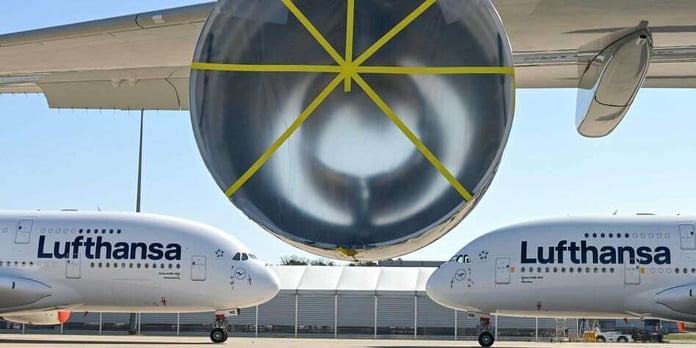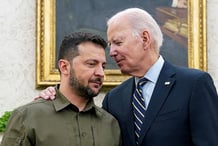
The specter is called the “scrappage bonus”: In the financial crisis after 2008, the federal government paid two million car owners, who had their old vehicle scrapped and bought a new one, 2500 euros each. This was intended to help the auto industry, it was sold by the SPD Environment Minister Sigmar Gabriel as an “environmental bonus” because old and dirty vehicles were exchanged for new ones.
But the criticism was great: German industry had hardly used the “flash in the pan”, it said. And the ministry of the environment was certified in a report “positive effects” of the premium, but actually confirmed the angry criticism of the environmental associations with its own logic: “The environmental premium was not primarily designed to relieve the environment. That is why she cannot be accused of having too little environmental efficiency. ”
In the global economic crisis of 2008/09, the global economy was supported by billions of euros. However, the global aid packages made little progress for environmental or climate policy. On the contrary, global CO2 emissions and the loss of species rose sharply again after the dent.
According to Corona, this should not happen again. “We have a responsibility to ensure that the economy recovers better than it did then,” says UN Secretary-General Antonio Guterres. The “framework for action” should set the UN goals for sustainability and climate protection
Historical opportunity
The head of the International Energy Agency IEA, Fatih Birol, also warned that “a historic opportunity” has been given to help the economy “reduce dirty investments and accelerate the energy transition”.
When the President of the European Commission presented the financing of her “European Green Deal” with 1 trillion euros at the beginning of March, only a measly 7.5 billion euros of fresh money were earmarked for seven years. Suddenly there is capital in abundance. And the question is: Does the tax money finance the old structures or the conversion to climate neutrality?
This debate is now starting in Germany. Even before the Bundestag approved the supplementary budget for the € 600 billion aid package that SPD finance minister Olaf Scholz calls “Bazooka” on Wednesday, environmental and climate protectionists are calling for eco criteria for the planned massive government spending.
The BUND wants a “far-sighted economic program that combines acute crisis management with investments in social-ecological transformation”, Greenpeace calls for a “green Marshall Plan”.
Support old technologies again?
The economist Claudia Kemfert warns of new money for old technologies and the green MP Lisa Badum demands that the “green deal must be the basis for all economic stimulus decisions”.
For the Agora Energiewende think tank, an investment program that “blindly promotes old technologies” would even be harmful because “it would cement higher emissions in the long run.”
An online petition on change.org wants to “make the corona crisis a climate opportunity: use rescue funds properly “; A spokeswoman for “Extinction Rebellion” demands, “no unconditional financial injections for polluters”, all public funds must be linked to standards to achieve the climate target of 1.5 degrees.
And the head of the Federal Environment Agency (UBA), Dirk Messner, says: “Economic stimulus packages have to be green and, in addition to employment and the economy, also promote the green deal and climate protection.” Refurbishment of buildings or more energy efficiency for industry.
Green patience
The calls for a green bazooka should also take the impetus away from the countermovement. Because in the crisis there are increasing voices to let go of the eco-buzz for now: The parliamentary state secretary in the CDU Ministry of Economic Affairs, Thomas Bareiss, tweeted about the demands to finally solve the questions of solar covers and distance rules for wind power: “We just have to tackle a few other more pressing issues that affect our entire country. ”
His group colleague Klaus-Peter Willsch wants to suspend the air traffic tax for one year to relieve the airlines. And because of the discussion, drastic suggestions buzz: suspend the CO2 price or the fertilizer regulation for farmers, relieve the car industry of the EU CO2 limit values, suspend EU emissions trading or “forget the green deal and concentrate on Corona.” “As the Czech Prime Minister Andrej Babis puts it.
This “to leave the wrong” is the first advice in a quick report that the “Forum Ecological-Social Market Economy” (FOS) has drawn up for Greenpeace. In addition, the money should flow above all into the structural change towards climate neutrality: in buses, trains and cycling, the insulation of buildings, more solar and wind energy.
The distressed air traffic should commit itself to help with more climate protection, the experience of the comprehensive “home office” could lead to more teleworking and fewer commuters, short-time work could be used as further training. Low oil prices could help cut $ 160 billion in annual fuel subsidies worldwide, the authors write.
It is never too early
It is too early for concrete determinations, it says on this question from the federal government. However, at least the SPD-led Ministry of Environment has that in mind. “The house is preparing itself for the economic programs to be equipped as far as possible to advance growth and climate protection,” said a spokesman.
The UBA has set up a working group in which experts on consumption, social science, and climate protection are looking for such solutions.
Because it is obviously not too early for such decisions. At least from China, which appears to have contained the corona epidemic, there are increasing signs, according to a report by Bloomberg News, that the government wants to invest heavily in projects that are already completed in order to boost growth – without great environmental considerations.













